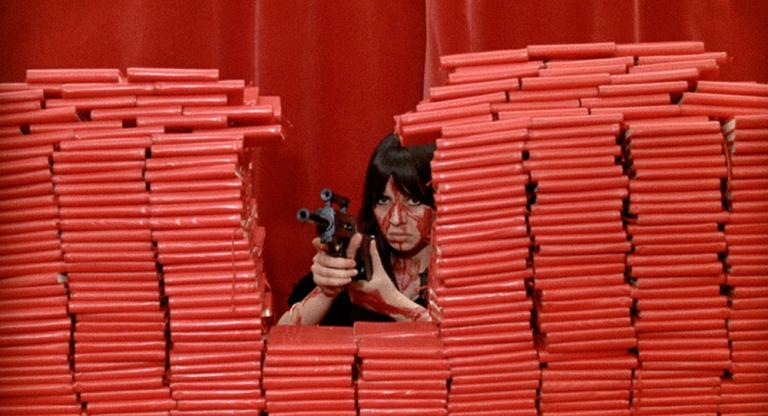Robert Kramer’s Guns premiered in 1980 to muted reception and promptly fell off the face of the earth, missing the home-video revolution and becoming an effectively lost film until its 2019 restoration, which just now reaches the U.S. as part of BAM’s Juliet Berto retrospective. Morose, insular, and fragmented, it nonetheless offers an interesting case study of an expatriate American filmmaker adjusting to the international decline of the left. The New Left that had nurtured Kramer went down in flames after the 1969 implosion of Students for a Democratic Society (in which Kramer had been involved), and the nation-state itself was being eclipsed by an emerging neoliberal world order. Kramer’s argument in Guns seems to be that the resulting vacuum was sucking narrativity down with it. He poses, but does not quite resolve, the question of how to represent that predicament—while also helming what was, in effect, his first real commercial feature.
Kramer gravitated toward ensemble pieces, which bleed into one another. In The Edge (1968), alienated New Leftists consider a plot to assassinate Lyndon B. Johnson; in Ice (1970), they break into armed insurrection against the bourgeois state (it remains the best film depiction of the moment that birthed the Weather Underground). By Milestones (1975), Kramer and collaborator John Douglas surveyed the fallout of “the Movement,” as predominantly white middle-class former activists sought authentic ways of living in the necropolitics of the Ford era. Guns updates this organic saga to a France populated by exiles, refugees, and disillusioned ex-radicals—basically Kramer’s own milieu after he moved there in 1979, his films ritually ignored in the U.S. even as they were feted at Cannes and debated in Cahiers du cinéma.
Berto plays an actor tending to her dying mother as she rebels against the phony filmmaking in which she’s trapped; Patrick Bachau is a burned-out investigative journalist tracking mysterious shipments of weapons; and Kramer, speaking in English, appears as a version of himself. The pieces don’t fully congeal: Berto’s scenes are sometimes classically staged, other times shot with raw, Pialat-like emotion. Meanwhile, Bachau and Kramer live in a noir, Kramer’s occasional narration verging on the pulpy, with the whole thing wrapped in Rivetteian enigma (Rivette had long informed Kramer’s work, and drew on it in turn).
By keeping Guns murky and opaque—don’t expect any sort of clear or tidy resolutions to its central mysteries—Kramer deflected, but the attempt to allegorize an emerging corporate governmentality by letting the narrative disintegrate as it runs was ambitious in its own way, even if in swinging for Rivette he landed closer to Alan J. Pakula’s Rollover (1981). Berto is always a compelling screen presence, but the real secret weapon was the director of photography Richard Copans, who came out of the French far-left cinéma militant tradition (imagine “a hybrid of Maoist and Trotskyite tendencies that tried to fuse the Cultural Revolution with a permanent revolution,” as Paul Douglas Grant describes the group Revo!) and liberated Kramer from his more realist mise-en-scène. Guns may not fully cohere, but its thematic sullenness is belied by Kramer’s clear exuberance in playing with high-angle shots, reflections of rippling water, and the supply-chain logistics at the port of Marseille, bathed in blue and orange, that loom ominously over the petty foibles of the film’s individual characters.
Guns screens tonight, June 5, at BAM as part of their Juliet Berto retrospective.




